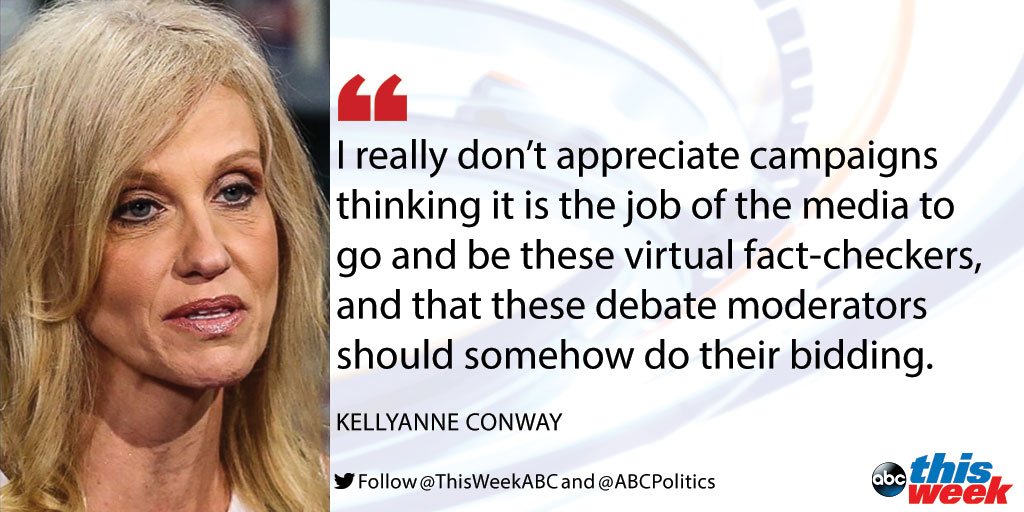Kudos to who ever brought the first Presidential debate 2016 to Hofstra University in New York City's Long Island. Apparently, the venue enhanced Hillary Clinton and her credibility as a confident candidate. She was right at home at Hofstra and her confidence showed.
Secretary Clinton was confident post the Hofstra University debate appeared smiling as she bounced on to a stage in Raliegh, North Carolina.
Nevertheless, Mrs. Clinton still has hard political work ahead, especially given how Donald Trump and his "stormtrooper" followers lurk around to pounce on her, at every opportunity, real or invented. Shame on former New York City Mayor Rudoph Guiliani for his clone following of the inept Donald Trump. Guiliani lurks around Trump, like a ghoul at a wake.
Proving how political time is measured minute by hour, it was only last week (ancient political history) when Democrats could hardly hide their neurosis about tightening poll numbers and the pressure on Hillary Clinton to regain her footing in the first debate against Donald J. Trump on Monday.
On Tuesday, we thankfully breathed a sigh of relief, at least for now.
Mrs. Clinton did not deliver a fatal blow or reconnect to voters in a way that will drastically alter the contours of an unpredictable election year, but she avoided the land mines that Mr. Trump had so effectively planted against his Republican primary opponents.
“I was surprised he wasn’t more aggressive on her, whether it was the emails or the foundation,” said Steve Elmendorf, a veteran Democratic strategist and lobbyist.
After a couple of rocky weeks, Mrs. Clinton greeted reporters on Tuesday morning with a fresh dose of confidence.
“We had a great, great time last night,” she said, and then quoted the baseball legend Ernie Banks, “Let’s play two.”
In an interview on ABC’s “The View” on Tuesday, Mrs. Clinton’s campaign manager, Robby Mook, said, “I don’t want to just win by a little, I want to win by a lot.”
Democratic allies echoed that optimism, but were also cleareyed about the topsy-turvy election year. The debate “gave everyone a big vote of confidence,” said Representative Tim Ryan of Ohio.
“America got the chance to see the Hillary I’ve known for a long time,” said Senator Chuck Schumer of New York. “She was smart, strong and presidential.”
But there was also a sense that the feeling could be fleeting.
After all, the solid bump Mrs. Clinton received after the Democratic National Convention in July evaporated after she emerged from an August packed with private fund-raisers.
By September, national polling averages showed a marked narrowing of the race.
In a New York Times/CBS News poll conducted this month, 46 percent of likely voters said they supported Mrs. Clinton, compared with 44 percent for Mr. Trump, down from her seven-point advantage at the end of July.
Even Mrs. Clinton, who often says she always expected the race to be close, has appeared confounded by the tight polls.
“Why aren’t I 50 points ahead?” an animated Mrs. Clinton asked last week in a video address to the Laborers’ International Union of North America meeting in Las Vegas.
In an online advertisement, the Trump campaign sought to answer that question. “Maybe it’s because you arrogantly call Americans ‘deplorable,’” a man’s voice says in the ad after Mrs. Clinton is shown questioning the tight polls. (In my blog opinion, Trump supporters are supportive of his "deplorable" policies.)
Against that backdrop, her campaign aides and allies, who typically play down the significance of any single debate, made clear the stakes of Monday’s match, held at Hofstra University in Hempstead, N.Y.
“Questions don’t throw her, and Clinton is relatively deft at landing the surgical strike,” Jennifer Palmieri, a spokeswoman for the Clinton campaign, said before the debate. “That’s when you see her at her best.”
Mrs. Clinton landed some surgical strikes, but aides pointed to a couple of moments, in particular, that they hope to push through Election Day to portray Mr. Trump as a cold businessman who has fleeced average Americans.
Democrats cheered when Mrs. Clinton accused Mr. Trump of not paying federal income taxes and he replied, playing into their hands, “That makes me smart.” And they could hardly believe their good fortune when Mr. Trump said, “That’s called business, by the way,” after Mrs. Clinton accused him of profiting from the housing crisis.
Mrs. Clinton has struggled to win over white working-class voters, and was quick to use Mr. Trump’s remarks as a potent attack on the campaign trail on Tuesday.
“The other thing he admitted last night is that he actually rooted for the housing crisis to happen,” she told a crowd in Raleigh, N.C. “What kind of person would like to root for nine million families losing their homes? One who should never be president.”
On Tuesday, former President Bill Clinton encouraged people in Ohio to register to vote. Mr. Trump leads Mrs. Clinton there by five percentage points, according to a Bloomberg politics poll.
Democrats planned to blast out Mr. Trump’s debate remarks to union workers in a last-ditch effort to soften his support.
“All our guys in Youngstown and Akron pay their fair share of taxes,” Mr. Ryan said, alluding to Mr. Trump. “He clearly only has his own social class in mind.”
In addition to white working-class voters, Mrs. Clinton tried to target several other demographic groups on Monday night.
To reach young voters, she talked about climate change and her plan to make college free. To connect with African-Americans, she offered an emotional defense of President Obama against what she called Mr. Trump’s “racist birther lie.” And to reassure female voters, she ended the evening portraying Mr. Trump as a misogynist.
“I think to the extent that either candidate reached beyond their base, it was Hillary Clinton,” said Joel Benenson, the campaign’s chief strategist and pollster.
Mr. Trump helped the Clinton campaign’s targeting efforts on Tuesday when he acknowledged pressuring a Miss Universe winner, Alicia Machado, (a magnificent beauty by anybody's standards) to lose weight, an attack Mrs. Clinton lodged in the memorable closing minutes of the debate.

Miss Universe 1996 Alicia Machado is a stunning beauty.
“She gained a massive amount of weight and it was a real problem,” Mr. Trump told Fox News. (Hello? Who cares?)
“It should have been, ‘Cleanup in Aisle 6,’” Senator Claire McCaskill, Democrat of Missouri, said of Mr. Trump’s remarks, “and instead he knocked four or five more bottles off the shelf.”
Donald Trump reiterated criticism of former Miss Universe Alicia Machado Tuesday, the morning after Hillary Clinton called him out for it on the presidential debate stage at Hofstra.
Machado came up during Monday night's debate between Trump, the Republican presidential nominee, and Clinton, his Democratic challenger. In one of Clinton's final comments, she accused Trump of being sexist and used an anecdote from Machado as evidence.
"And one of the worst things he said was about a woman in a beauty contest," Clinton said, according to The Washington Post's annotated transcript. ". . . And he called this woman 'Miss Piggy.' Then he called her 'Miss Housekeeping' because she was Latina . . . Her name is Alicia Machado. And she has become a U.S. citizen, and you can bet she's going to vote this November."
Even with a newfound spring in their step, Democrats say that Mr. Trump has repeatedly proven his ability to bounce back and that the solid reviews for Mrs. Clinton’s debate performance may do more to improve perceptions about her candidacy than actual poll numbers.
“I definitely think confidence is a bad idea,” Senator McCaskill said.
Labels: Alicia Machado, Donald Trump, Miss Univese, Rudolph Guiliani








